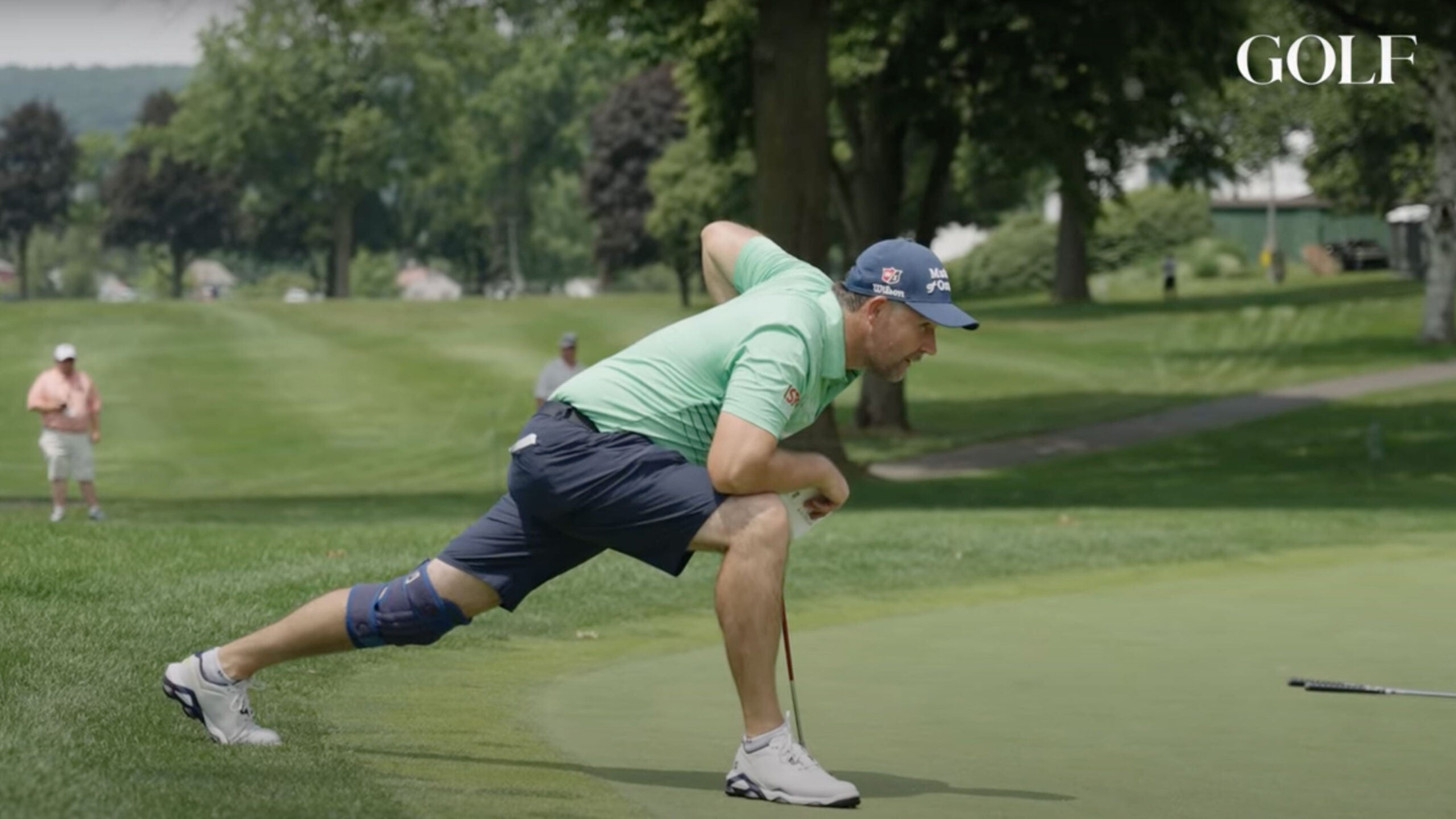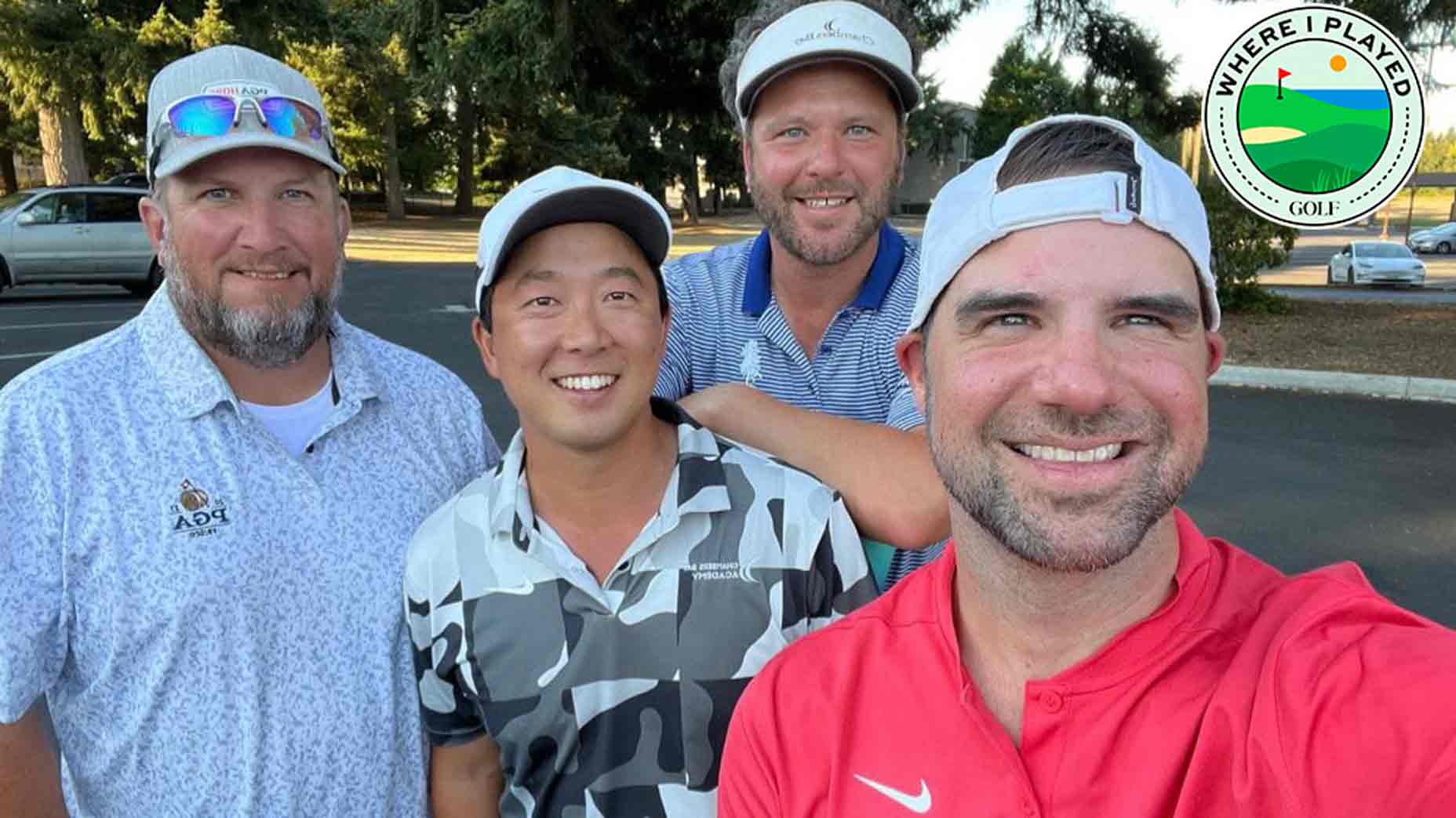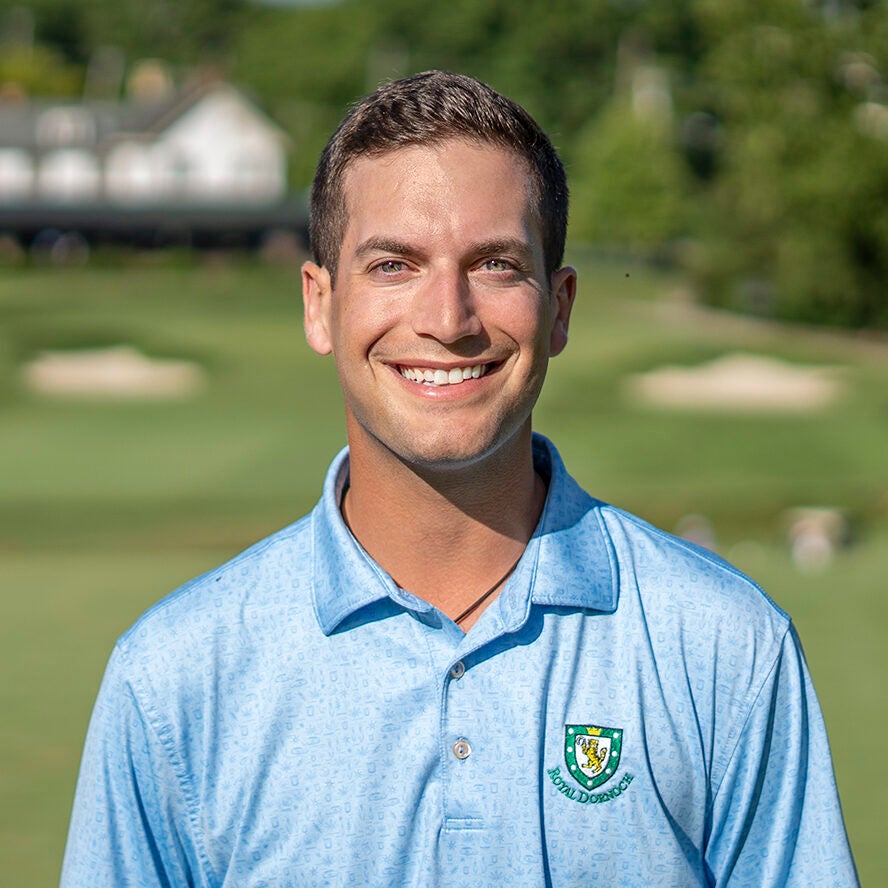4 things 2 handicaps he learned playing in his first Korn Ferry Tour pro-am

Our own Jack Hirsh got some of the best players on the Korn Ferry Tour up close during the Magnet Championship Pro-Am. Here's what he learned.
Magnet Championship
Consider this the start of a great day of golf: You arrive at the prime spot just after sunrise, enjoy breakfast before heading to one of the most expansive driving ranges you've ever seen, drop your bag behind a completely untouched stretch. straw tied before being asked a simple question.
“Would you like Pro V1 or ProV1x?”
There aren't many better questions.
Last week, I was lucky enough to be invited to my first pre-tournament pro-am on any professional tour at the Korn Ferry Tour's Magnet Championship. The Magnet Championship serves as the regular season finale of the Korn Ferry Tour and is held at the Metedeconk National Golf Club in Central New Jersey (the location in Central Jersey is a hotly debated topic, but for the sake of simplicity, we'll go with it for now), just an hour from at my home in Philadelphia. Both of our pros said it was the best course played on tour all year.
I've been fortunate enough to play with Tour pros before, including the PGA Tour Champions when I was in high school at what was then the First Tee Open, but not only am I a much better player now, it was a completely different experience. .
Here are four things I learned playing in my first Korn Ferry Tour Pro-Am.
The sound is just different
I am a good golfer and I can hit the ball very far. I have been as low as a plus-1 handicap, but currently carry a 1.6 index. With my driver, I stay comfortably around 115-118 mph clubhead speed which results in a ball speed around 170 mph.
I'm not telling you this to toot my horn, but mainly for the sake of comparison because not only do I play with many other golfers who are much better than me, I'm often asked why I didn't play. DI college golf or whatever is the difference between me and a Tour pro. The truth is, compared to these guys, I suck.
Nowhere is that more evident than the sound of their drivers' football.
We were fortunate to be paired with two amazing professionals. In our top nine, we're joined by Mason Anderson, a 25-year-old from Arizona who won earlier this year and is 14th in the points standings at Korn Ferry. That means he's in good shape to finish in the top 30 at the end of the season and earn his PGA Tour card next season.
Mason is 97th in driving distance this season with an average of 302.7 yards off the tee. I didn't hit a lot of great shots on the back nine, but I didn't need to know that Mason would easily take my money in a long driving contest.
The impact sound is strong THWACK that I just can't produce. His swing is fast and he hits the dead center of the face more often than I could ever dream of.
You get a feel for this watching any professional tournament, but playing in it gives you a whole new perspective.
Another of our pros, Pontus Nyholm, is 33rd on Tour at 317 a pop. I'll let you use your imagination as to what the ball feels like in his club.
These guys have done a lot of this
Also, they are very expert in playing their role to make the experience in the pro-am as it happens from Thursday to Sunday.
You play nine holes with one pro and nine with another and take a group photo (above) at the turn. Both Phontus and Mason hold their bags and know exactly when and where to stop for our moment.
You might as well tell them to be happy that all four of our team hit the ball straight compared to the hacks who tend to herd it where they go.
But that doesn't mean they hesitated to give tips.
One of the players on our team, John Clark, sports anchor for NBC Sports Philadelphia, has an indescribable twist on what I said to him the first time I saw you: “Tell me you played baseball without saying it. I played baseball.”
John is a new golfer, having picked it up during the pandemic, like many. It's like he's on the mend now that he just joined a local club outside of Philly.
He stops the ball well like a batsman digs in the box, until he points the club at the goal from the hip as if he is calling a home run. But what Mason wanted to fix on the 8th tee was how to suck the club in and bring it back up, like a hitter trying to line one left.
Mason wanted John to move the club back out and create space for him to not sink the club on the way down.
He tried. Forget down the fairway.
The work of the church is about to end
By the time Wednesday rolls around, both players and caddies have a pretty good idea of their game plans for the week. At a pace of 5 hours and 15 minutes, they would have had plenty of time to hit an extra ball here and there, but most of the time, they didn't.
Both Mason and Phontu took a few more putts and chips on the green, but that was the extent of checking the course was already done. There was little discussion about tees and approaches about what to hit.
They both told me that most of the game shows happen on Tuesdays and Mondays if they arrive early. Wednesday is all about learning the nuances of the greens and measuring where the pins might be.
That reminds me, the pegs will never be where they were in the pro-am as some of them were cut into the steep slopes to prevent traffic on the greens where the pegs might actually be.
The difference is in the head
It really does take a village for a player to make it to the PGA Tour. Yes, every player has a caddy, and both Trevor (Mason's caddy) and Josh (Pontus' caddy) were nice and welcoming to us as players.
But the difference can sometimes be more than a great caddy-player duo.
Both Mason and Pontus told us they are working with mental health coaches to help them and maybe get a chance on other players.
It's a common practice you see on the PGA Tour, but even on the Korn Ferry Tour, where resources are scarce, players still need the mental edge to get them to the top of their game.
Source link







